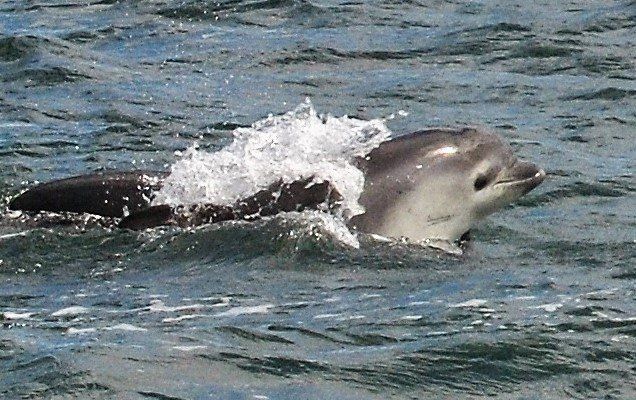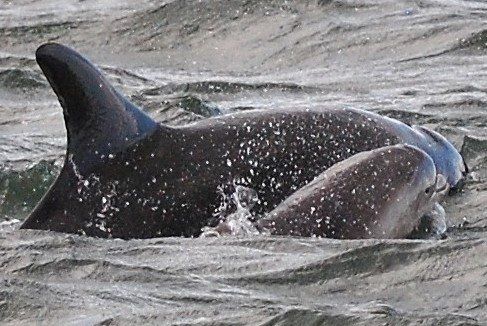Dolphin moms talk to their unborn offspring just like human moms!
Humans are not the only ones to communicate with their unborn calves.
Many expectant human mothers talk, sing or read to their progeny in their womb to form a connection, but as research carried out by the University of Mississippi suggests, so do dolphins!
Bottlenose dolphins ( Tursiops truncatus) can differentiate the sound of their mothers from other members of the pod. Similar to humans, mother dolphins communicate with their unborn calves by singing their name and teaching them a ‘signature whistle’ that is unique. The sound of the whistle made by an individual dolphin mother helps the calf to identify and differentiate them from other dolphins.
Whistling rate has also shown to increase in both pre and post delivery as well as during the first three weeks of the calves life, which is likely to help in vocal learning, while other dolphins in the group actually decrease their whistle rates (Ames, 2016). The study was conducted on a captive dolphin mother who gave birth to a calf they named Mira in 2014. With 80 hours of recorded sounds from the mother, baby and other dolphins in the enclosure, researchers identified the frequency of the signature whistles during the two months before birth and two months after. An increase in the signature whistle was found most frequent two weeks before birth and continued on for two weeks after, before it subsided.
The findings were compared against other dolphins in the enclosure, who were relatively silent and infrequently exhibited their own signature whistle during this period. Lead researcher, Dr. Audra Ames said: “What other dolphins might be doing here is remaining quiet so the calf does not imprint on the wrong signature whistle.” They only resumed their usual noises when the mother began reducing her signature sound to her new born calf.
Each dolphins signature whistle is a unique frequency and is generally developed by one year of age, remaining stable throughout the rest of the dolphin's life. For the fist few weeks of life, a dolphin calf may use its mother's signature whistle. It has also been found that calves model their own signature whistles off the signature whistles of other members of the group. These whistles become highly stereotyped and function as contact calls to coordinate group cohesion.
Previous research has suggested that an increase in whistle call rates in pre and post partum were part of an imprinting process to aid in the establishment of an early recognition system for mother/calf pairs (Fipp & Tyack, 2005).
While there might not be a lot of research on pre birth whistle production in dolphins at present, this paves the way for more to come in the future. It’s a known fact that dolphins are intelligent mammals, so their nurturing and communication habits are likely to exhibit common similarities to human mothers.
References:
Ames, Audra Elizabeth, "Pre- and Post-Partum Whistle Production of a Bottlenose Dolphin (Tursiops truncatus) Mother-Calf Dyad" (2016). Master's Theses. 168.
Fripp , D., Owen, C., Rizzo-Quintana, Shapiro, D,A., Buckstaff, K., Jankowski, K., Wells, R., Tyack, P (2005). Bottlenose dolphin (Tursiops truncatus) calves appear to model their signature whistles on the signature whistles of community members. Animal Cognition,
8 (1), 17-26.
SHARE THIS ARTICLE















